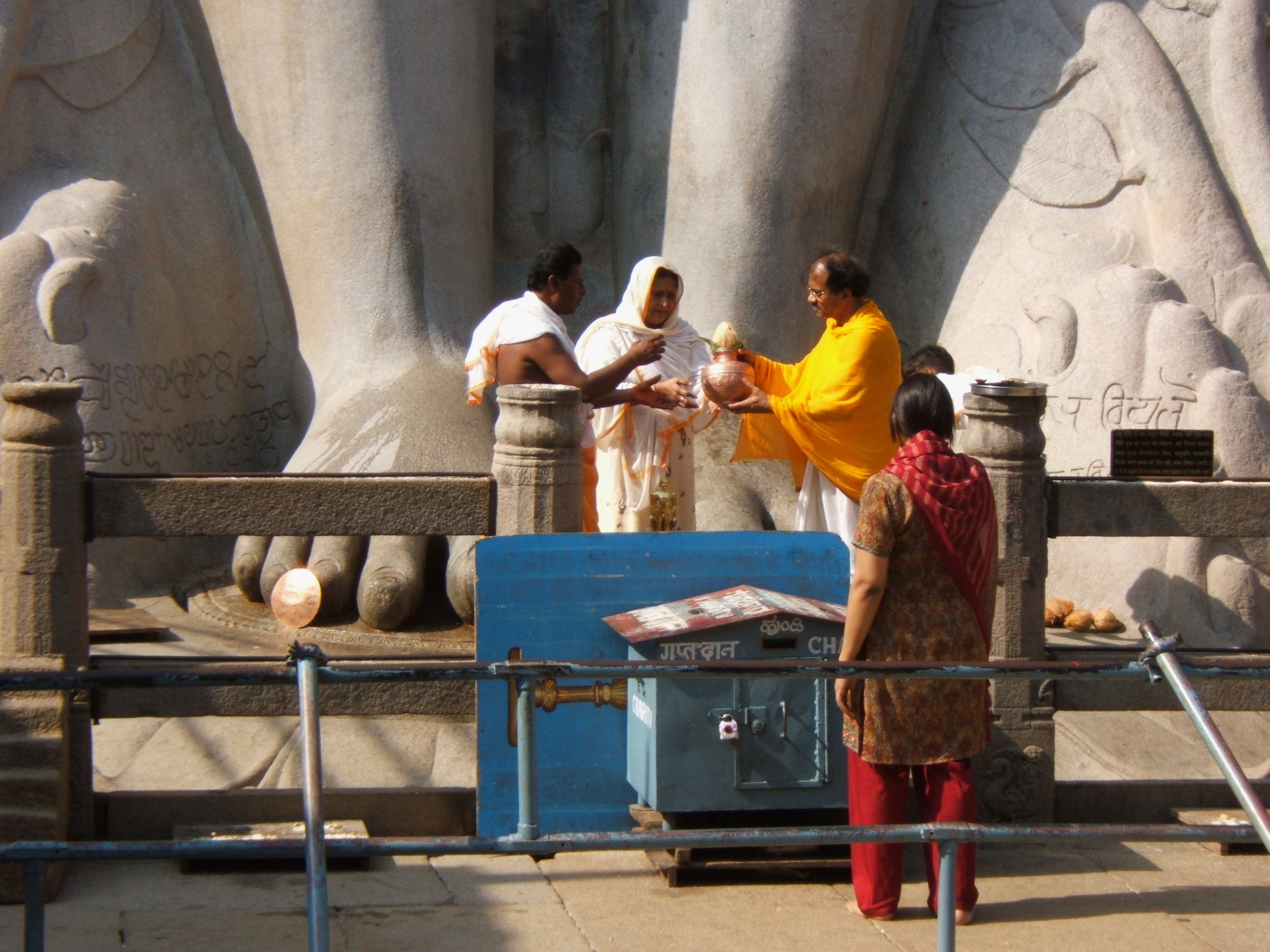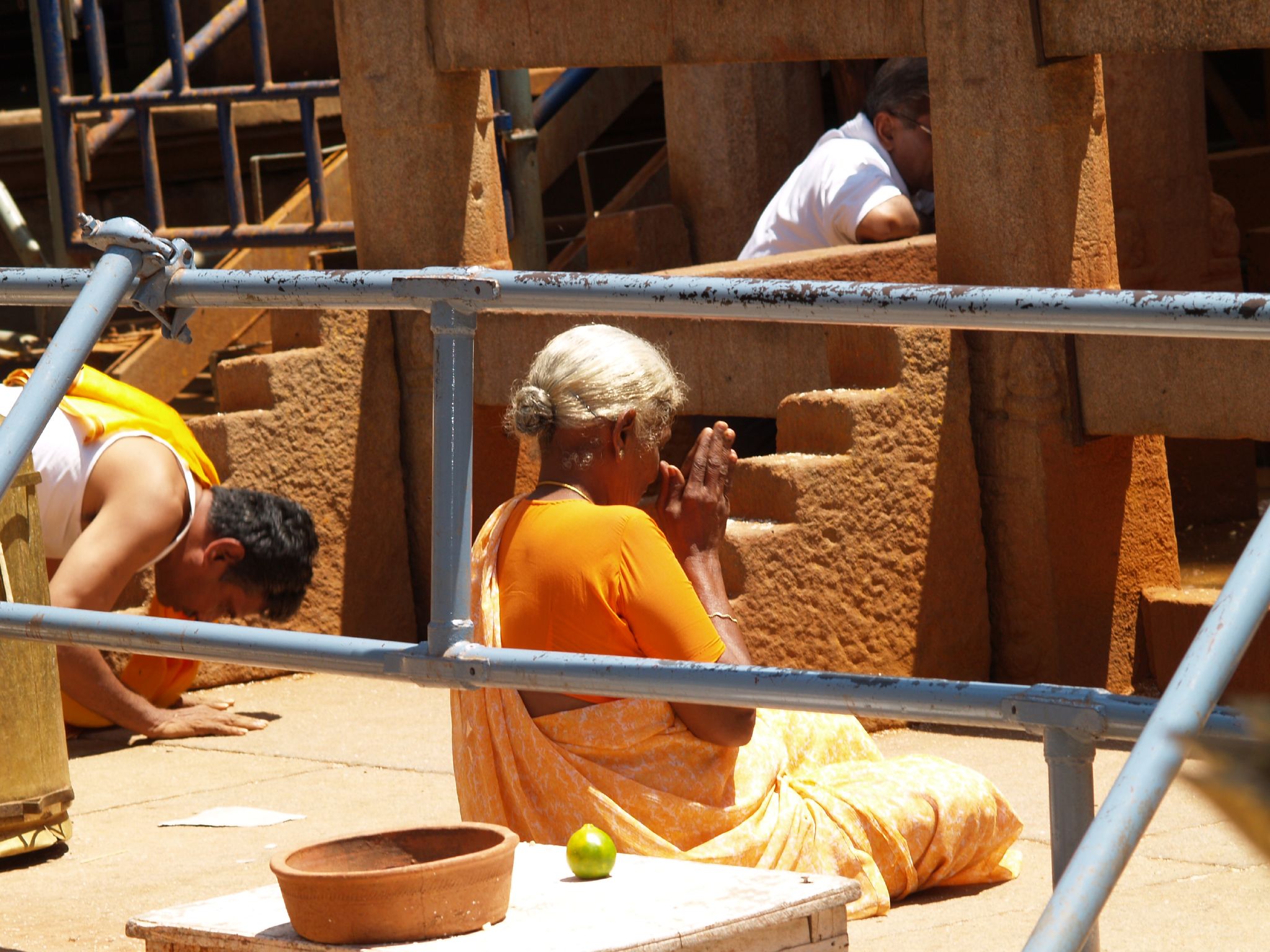Śrāvaka (Jainism) on:
[Wikipedia]
[Google]
[Amazon]
 In
In
 In Jainism, six essential duties (''avashyakas'') are prescribed for a ''śrāvaka''. These help the laity in achieving the principle of ahimsa which is necessary for his/her spiritual upliftment. The six duties are:
#Worship of Pañca-Parameṣṭhi (five supreme beings)
#Following the preachings of Jain saints
#Study of
In Jainism, six essential duties (''avashyakas'') are prescribed for a ''śrāvaka''. These help the laity in achieving the principle of ahimsa which is necessary for his/her spiritual upliftment. The six duties are:
#Worship of Pañca-Parameṣṭhi (five supreme beings)
#Following the preachings of Jain saints
#Study of
Alt URL
{{DEFAULTSORT:Sravaka (Jainism) Jain sangha
 In
In Jainism
Jainism ( ), also known as Jain Dharma, is an Indian religion. Jainism traces its spiritual ideas and history through the succession of twenty-four tirthankaras (supreme preachers of ''Dharma''), with the first in the current time cycle bein ...
, the word Śrāvaka or Sāvaga (from Jain Prakrit) is used to refer the Jain laity
In religious organizations, the laity () consists of all members who are not part of the clergy, usually including any non- ordained members of religious orders, e.g. a nun or a lay brother.
In both religious and wider secular usage, a lay ...
(householder). The word ''śrāvaka'' has its roots in the word ''śrāvana'', i.e. the one who listens (the discourses of the saints).
The ''tirthankara
In Jainism, a ''Tirthankara'' (Sanskrit: '; English: literally a ' ford-maker') is a saviour and spiritual teacher of the '' dharma'' (righteous path). The word ''tirthankara'' signifies the founder of a '' tirtha'', which is a fordable pass ...
'' restores or organises the '' sangha'', a fourfold order of ''muni'' (male monastics), ''aryika'' (female monastics), '' śrāvaka''s (male followers) and ''śrāvikā''s (female followers).
In Jainism, there are two kinds of votaries:
*The householder (one with minor vows)
*The homeless ascetic (one with major vows)
According to the Jain text
Jain literature (Sanskrit: जैन साहित्य) refers to the literature of the Jain religion. It is a vast and ancient literary tradition, which was initially transmitted orally. The oldest surviving material is contained in the ca ...
'' Puruşārthasiddhyupāya'':
Ratnakaranda śrāvakācāra, a major Jain text
Jain literature (Sanskrit: जैन साहित्य) refers to the literature of the Jain religion. It is a vast and ancient literary tradition, which was initially transmitted orally. The oldest surviving material is contained in the ca ...
, discusses the conduct of a Śrāvaka in detail.
Six essentials
 In Jainism, six essential duties (''avashyakas'') are prescribed for a ''śrāvaka''. These help the laity in achieving the principle of ahimsa which is necessary for his/her spiritual upliftment. The six duties are:
#Worship of Pañca-Parameṣṭhi (five supreme beings)
#Following the preachings of Jain saints
#Study of
In Jainism, six essential duties (''avashyakas'') are prescribed for a ''śrāvaka''. These help the laity in achieving the principle of ahimsa which is necessary for his/her spiritual upliftment. The six duties are:
#Worship of Pañca-Parameṣṭhi (five supreme beings)
#Following the preachings of Jain saints
#Study of Jain scriptures
Jain literature ( Sanskrit: जैन साहित्य) refers to the literature of the Jain religion. It is a vast and ancient literary tradition, which was initially transmitted orally. The oldest surviving material is contained in the c ...
#'' Sāmāyika'' (Vow of periodic concentration)
#Following discipline in their daily engagement
#Charity (''dāna'') of four kinds:
##''Ahara-dāna'' – donation of food
##''Ausadha-dāna'' – donation of medicine
##''Jnana-dāna'' – donation of knowledge
##''Abhaya-dāna'' – saving the life of a living being or giving of protection to someone under threat
Twelve Vows
Jain ethical code prescribes five main vows and seven supplementary vows, which include three ''guņa vratas'' and four ''śikşā vratas''.Mahavratas
In Jainism, bothascetics
Asceticism (; from the el, ἄσκησις, áskesis, exercise', 'training) is a lifestyle characterized by abstinence from sensual pleasures, often for the purpose of pursuing spiritual goals. Ascetics may withdraw from the world for their p ...
and householders have to follow five vows (''vratas'') compulsorily. These five vows are:
# Ahiṃsā – Not to hurt any living being by actions and thoughts. Out of the five types of living beings, a householder is forbidden to kill, or destroy, intentionally, all except the lowest (the one sensed, such as vegetables, herbs, cereals, etc., which are endowed with only the sense of touch).
#Satya
''Satya'' (Sanskrit: सत्य; IAST: ''satya)'' is a Sanskrit word loosely translated as truth, essence. A. A. Macdonell, ''Sanskrit English Dictionary'', Asian Educational Services, , pp. 330–331 It also refers to a virtue in Indian relig ...
– to lie or speak what is not commendable
#Asteya
''Achourya'' (Sanskrit: अचौर्यः, IAST: Acauryaḥ ) or ''Asteya'' (Sanskrit: अस्तेय; IAST: ''asteya'') is the Sanskrit term for "non-stealing". It is a virtue in Hinduism . The practice of ''asteya'' demands that one mu ...
– Not to take anything if not given
# Brahmacharya ( Chastity) – Refraining from indulgence in sex-passion
#Aparigraha
Non-possession (aparigraha ( sa, अपरिग्रह)) is a philosophy that holds that no one or anything possesses anything. ln Jainism, aparigraha is the virtue of non-possessiveness, non-grasping or non-greediness.Arti Dhand (2002), The d ...
( Non-possession) – Detachment from material property
Anuvratas
Guņa vratas
*''digvrata'' – Restriction on movement with regard to directions *''bhogopabhogaparimana'' – Vow of limiting consumable and non-consumable things *''anartha-dandaviramana'' – Refraining from harmful occupations and activities (purposeless sins)Śikşā vratas
*'' Samayika'' – Vow to meditate and concentrate periodically. The ''sāmayika vrata'' (vow to meditate) is intended to be observed three times a day if possible; other-wise at least once daily. Its objective is to enable the ''śrāvaka'' to abstain from all kinds of sins during the period of time fixed for its observance. The usual duration of the ''sāmayika'' vow is an ''antara mūharta'' (a period of time not exceeding 48 minutes). During this period, which the layman spends in study and meditation, he vows to refrain from the commission of the five kinds of sin — injury, falsehood, theft, unchastity and love of material possessions in any of the three ways. These three ways are: #by an act of mind, speech or body (''krita'') #inciting others to commit such an act (''kārita'') #approving the commission of such an act by others (''anumodanā'') In performing ''sāmayika'' the ''śrāvaka'' has to stand facing north or east and bow to the '' Pañca-Parameṣṭhi''. He then sit down and recites the Namokara mantra a certain number of times, and finally devotes himself to holy meditation. ''Sāmayika'' can be performed anywhere- a temple, private residence, forest and the like. But the place shouldn't be open to disturbance of any kind. *''Desavrata'' — Limiting movement to certain places for a fixed period of time. *''Upvas'' — Fasting at regular intervals *''Atihti samvibhag'' — Vow of offering food to the ascetic and needy people A householder who observes these vows is called ', i.e., one who observes abstinence as well as non-abstinence.Sallekhanā
A householder who has observed all the prescribed vows to shed the ''karmas
Karma (; sa, कर्म}, ; pi, kamma, italic=yes) in Sanskrit means an action, work, or deed, and its effect or consequences. In Indian religions, the term more specifically refers to a principle of cause and effect, often descriptivel ...
'', takes the vow of ''sallekhanā'' at the end of his life. According to the Jain text, ''Puruşārthasiddhyupāya'', "sallekhana enable a householder to carry with him his wealth of piety". The ''Sallekhana
''Sallekhana'' (IAST: ), also known as ''samlehna'', ''santhara'', ''samadhi-marana'' or ''sanyasana-marana'', is a supplementary vow to the ethical code of conduct of Jainism. It is the religious practice of voluntarily fasting to death by ...
'', a voluntary vow of self-starvation if the vows are impossible to uphold by reducing eating of food and partaking of liquids or die while engrossed in meditation with equanimity of mind. Sallekhana is preserving the loss of karma which would be impeded and prevent the further effacing of grief, fear, anger, affection, hatred, prejudice e.t.c. and other afflictions with or without his knowledge in contravening Right Faith, Right Thought and Right Conduct nearing the end of life after vows and austerities have had their beneficial karma on the world by their sacrifice, giving, restraint, pure thoughts and by listening, forgiving e.t.c.. A Jain man or women with vows spend much time on prayer and scripture freed from pleasure and passion.
See also
*Sarak
Saraks ( bn, সরাক) (from Sanskrit Śrāvaka) is a community in Jharkhand, Bihar, Bengal, and Orissa. They have been followers of some aspects of Jainism, such as vegetarianism, since ancient times, however, were isolated and separat ...
* Pratima (Jainism)
* Tapas (Indian religions)
Tapas (Sanskrit: तपस्) is a variety of austere spiritual meditation practices in Indian religions. In Jainism, it means asceticism (austerities, body mortification); in Buddhism, it denotes spiritual practices including meditation and s ...
* Tapas (Jain religion)
References
Sources
* * * * * * *Alt URL
{{DEFAULTSORT:Sravaka (Jainism) Jain sangha